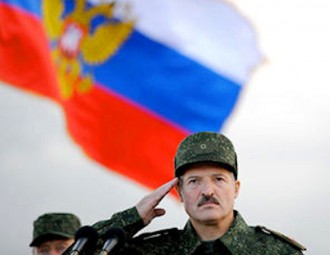Kremlin to avoid full-scale oil and gas war with Minsk
 osvedomitel.com
osvedomitel.com
Kremlin’s lever of pressure on Minsk to enforce the realization of the gas payment agreements has significantly narrowed.
Amid the international community’s sanction policy towards Moscow, the Belarusian leadership is becoming more assertive in defending its interests. Minsk is likely to suffer minimal losses in the oil and gas standoff with the Kremlin, and the Belarusian government is likely to push through a compromise regarding oil and gas supplies.
Russian Energy Minister Alexander Novak said in the couloirs of the St. Petersburg International Economic Forum that oil supplies to Belarus in Q3 2016 would be halved (i.e. reduced by 2 million tons) compared with Q2 2016. That said, in recent years, the volume of duty-free supplies of Russian oil to Belarus have been increasing and totalled 22.9 million tons in 2015. When rationalising the reduction in oil supply, Russia has referred to an agreement, according to which Russia has the right to reduce oil supply if Belarus reduces petrol supplies to Russia. According to official data, in H1 2016 Belarus supplied only 78,000 tons of oil products to Russia with the annual commitment of 1 million tons. Meanwhile, in April, despite the reduced supplies of Belarusian petrol to Russia, Russian Energy Minister Alexander Novak emphasised that there were no claims to Belarus.
In response, Belarus has referred to the fact that Belarusian refineries are working at a loss when supplying oil products to the Russian market and that Russian market has surplus of petrol anyway.
Russian Vice-Prime Minister Dvorkovich clarified the situation and explained that the reduction in Russian oil supplies was due to overdue payments for gas by Belarus. "Our Belarusian partners underpay us for gas, due to this, we are losing money, including in the budget, so as Gazprom is a major taxpayer, and, naturally, we are forced to seek for a refund option", he said.
According to Gazprom, in late May 2016, Belarus’ debt for gas totalled USD 250 million. Minsk denied the debt, and demanded to change the calculation formula and to half the gas price, due to the fall in oil prices on the world market. By reducing oil supplies to Belarus, Russia anticipates to get a refund for underpayment for gas supply to Belarus. That said, in Russia’s overall oil exports (244 million tonnes), Belarus’ share is quite low (23.9 million tonnes).
If Russia reduces oil supplies by 5 million tonnes, Belarus’ GDP fall will accelerate. Belarusian oil industry is likely to reduce production by 22%, instead of the projected growth at 3-4%. Given the high proportion of oil processing in industrial production, a further decline in industrial output indicators is likely to follow - by at least 3% compared with the current situation. Oil products attribute to about 40% in the wholesale trade, the influence of which on GDP is estimated at 7%-8%. The reduction in oil supplies will lead to a drop in pipeline and railway transport performance. The combined effect from reduced oil supply may be GDP fall by more than 2%. In addition, the volume of export duties on oil products retained in the Belarusian budget will reduce, which will reduce Belarus’ capacity in providing state aid to the economy and in repaying foreign debt.
On its side, Minsk hopes that Russian threats to reduce oil supplies will not materialise in full, therefore will lead to minimal losses on none at all. Firstly, Belarus provides the largest transit of Russian oil to the EU, even after the launch of the Baltic Pipeline System, the share of Russian oil transit through Belarus to the EU in the total volume of Russian oil exports to the EU is more than 60%. Secondly, the protocol to the agreement on Russian oil supplies to Belarus and counter-deliveries of Belarusian oil products to Russia stipulates that counter deliveries could be reduced. Therefore, a legal dispute about the scope of supply could lead to ambiguous conclusions, and, most of all, to Belarus’ victory. Thirdly, oil issues neither pro forma, nor de facto are tied to gas issues. Minsk has very strong arguments to reduce the gas price, while Gazprom has strong arguments not to change the gas price. Since neither party has an obvious advantage, Russia has raised the stakes and threatened with substantial financial implications. Belarus, however, repeatedly confronted the Kremlin over energy issues in the past and is aware that Russia has limited means to implement its threats.
Unlike before, the Kremlin is unlikely to apply the full set of pressure instruments on its ally. For example, in a similar situation in 2010 a major oil and gas war broke between Minsk and Moscow over overdue debt totalling USD 192 million. Then, Gazprom announced an 85% reduction in gas supplies to Belarus, while the Kremlin launched an information war against President Lukashenka.
Amid the EU sanctions and revision downwards of almost all contracts with Gazprom, Belarus is attempting to take advantage of its status as one of the remaining allies of the Kremlin and impose its conditions on reducing the gas price. The Kremlin is likely to yield to the pressure from Belarus, as it does not have enough lever of pressure on Minsk.
-
03.01
-
07.10
-
22.09
-
17.08
-
12.08
-
30.09








































